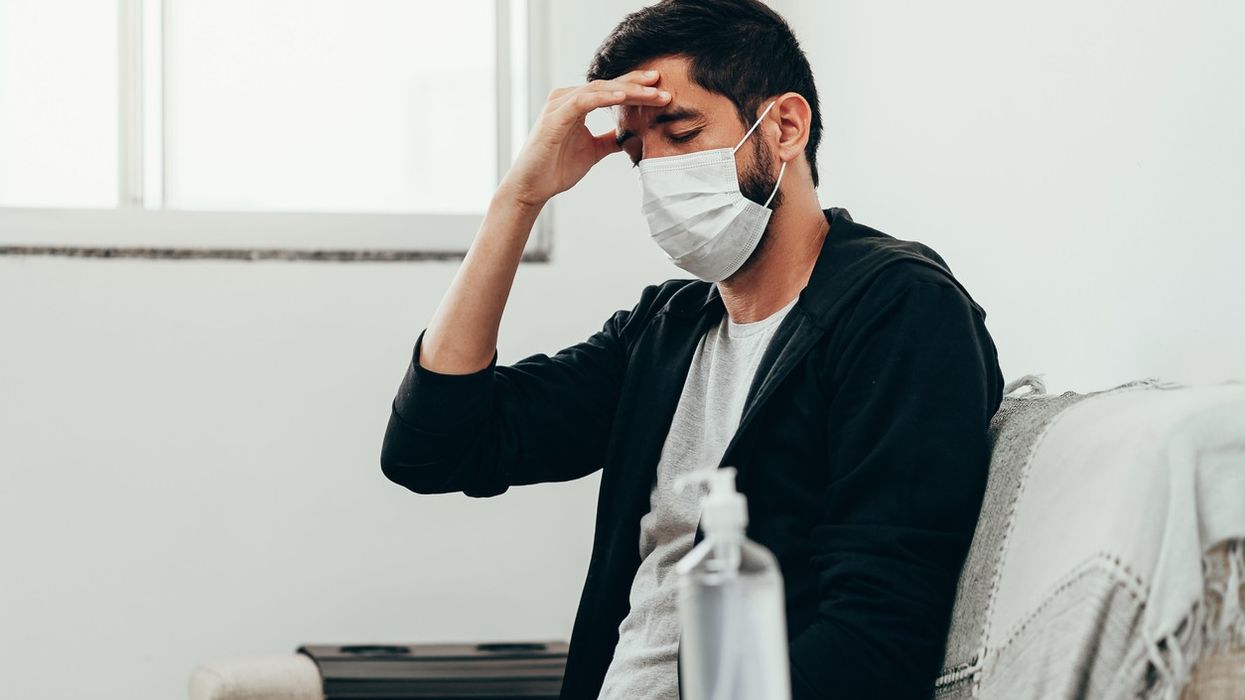Infection with the SARS-CoV-2 virus may negatively impact semen quality, according to a study on 30 males conducted by researchers at the All India Institute of Medical Sciences.
The team led by researchers at AIIMS Patna, Bihar noted that COVID-19 can lead to multiorgan damage through the angiotensin-converting enzyme-2 receptor (ACE2), abundant in testicular tissue.
ACE2 acts as the receptor for the SARS-CoV-2 spike protein, through which the virus gains entry into the host cells.
However, little information is available regarding the shedding of SARS-CoV-2 in semen - the thick, white fluid that contains sperm -- and its impact on sperm formation and fertility potential.
The study, published in the Cureus Journal of Medical Science, investigated the presence of SARS-CoV-2 in the semen of COVID-19 males.
The researchers also analysed the effect of the disease on semen quality and sperm DNA fragmentation index, which reflects the integrity of and the damage to the DNA, thereby detecting potential sperm damage.
Thirty COVID-19 male patients aged 19-45 registered to AIIMS Patna hospital participated in the study between October 2020 and April 2021.
"We conducted a real-time reverse transcriptase test on all the semen samples. Detailed semen analysis, including the sperm DNA fragmentation index, was done at first sampling that is during COVID-19," the authors of the study said.
"After 74 days of the first sampling, we obtained the second sampling and repeated all the tests," they said.
The study, including researchers from AIIMS Managalagiri and AIIMS New Delhi, found that all semen samples collected in the first and second sampling tested with real-time reverse transcription-polymerase chain reaction (RT-PCR) were negative for SARS-CoV-2.
In the first sampling, semen volume, vitality, total motility, sperm concentration, and total sperm count were significantly lower, the researchers said.
In contrast, semen agglutination or formation of sperm heaps, head defect, DNA fragmentation index, liquefaction time, semen viscosity, and leukocytes or white blood cells, were increased.
Liquefaction time is a measure of the time it takes for the semen to turn into a liquid while viscosity is the thickness of the seminal fluid.
These results were reversed at the second sampling but not to the optimum level, according to the researchers.
The findings were statistically significant suggesting "COVID-19 negatively affects semen parameters, including sperm DNA fragmentation index," the authors noted.
"Although we could not find SARS-CoV-2 in the semen, the semen quality remained poor until the second sampling," they said.
The researchers noted that assisted reproductive technology (ART) clinics and sperm banking facilities should consider assessing the semen of COVID-19-infected males.
ART includes all fertility treatments in which either eggs or embryos are handled.
These clinics should exclude men with a positive history of SARS-CoV-2 until their semen quality returns to normal, the researchers added.
(PTI)




